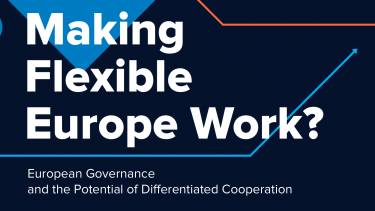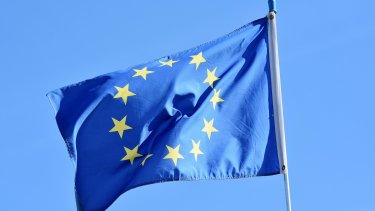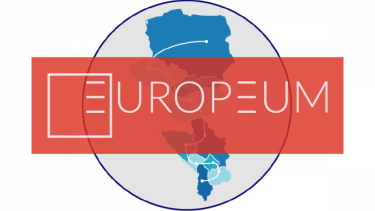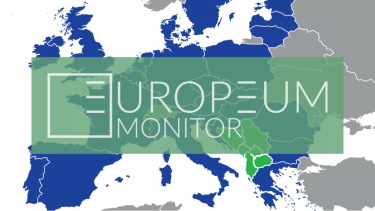Transatlantic Policy Forum (TAPF)
Transatlantic Policy Forum (TAPF) is a closed-door summit for decision-makers and opinion-formers co-organised by EUROPEUM Institute for European Policy with partners. TAPF has been held in Prague every Autumn since 2018 under the auspices of the Ministry of Foreign Affairs of the Czech Republic.
Show more
Making Flexible Europe Work? European Governance and the Potential of Differentiated Cooperation
Our associate researcher fellow Zuzana Stuchlíková (former head of our Brussels Office) contributed to the report of the project "DIFF GOV: European Governance: Potential of Differentiated Cooperation". Its goal is to explore the potential for flexible modes of cooperation between European Union Member States.
Show more
REPORT: Ever closer, never single
On 12 November 2019, Permanent Representation of the Czech Republic to the European Union together with EUROPEUM Institute for European Policy and CEBRE - Czech Business Representation to the EU in Brussels organised a high-level lunch debate. The meeting was attended by representatives of European Commission, Member States, MEPs, private sector as well as trade unions and research institutes. The debate focused on assessing the current state of the Single Market based on various survey conducted among businesses earlier this year - and draw recommendations for the new Commission.
Show more PDFRECOMMENDATIONS: Directly controlled programs and other instruments in the new multiannual financial framework as an opportunity for Czech interests
Recommendations regarding directly controlled programs and other instruments in the new multiannual financial framework, based on the roundtable discussion of the National Convention on EU Affairs, are now available. They were prepared by Zuzana Kasáková and Vladimír Bartovic from EUROPEUM Institute for European Policy. The discussion took place on November 22.
Show more PDF
Good practices and lessons learned from the Visegrad Four and Western Balkans
EUROPEUM Institute for European Policy in association with Research Center of the Slovak Foreign Policy Association, Institute for Foreign Affairs and Trade, European Movement in Serbia, WiseEuropa Institute and Academy of European Integration and Negotiation published final Policy Paper about good practices and lessons learned from the Visegrad Four and Western Balkans.
Show more PDF

POLICY PAPER: Slovak-Hungarian reconciliation and lessons for the Western Balkans
Nikolett Garai and Tomáš Strážay published Policy Paper about Slovak-Hungarian reconciliation and lessons for the Western Balkans.
Show more PDF
REPORT: Workshops on disinformation
EUROPEUM Institute for European Policy in collaboration with KohoVolit.eu and Demagog.cz held two workshops in Hradec Králové on the topic of disinformation and fake news.
Show moreBetween moderate progress and prolonged stagnation: The European Commission’s Reports on the Western Balkans
In the next entry of the Eastern Monitor series, our Marko Stojić deals with European Commission's reports on the Western Balkans and the potential candidate countries from the area.
Show more PDF

POLICY PAPER: The Legal Status of Accredited Parliamentary Assistants
In her policy paper, Nicole Grmelová concerns with accredited assistants to the European Parliament, commonly referred to as APAs. She examines their legal status and evaluates its efficiency, strengths and weaknesses, and also compares its written wording with the actual implementation after 10 years of existence of the legal status of assistants.
Show more PDFRECOMMENDATIONS: Setting the future relationship with the UK after Brexit
Recommendations for setting the future relationship with the UK after Brexit, based on the roundtable discussion of the National Convention on EU Affairs, are now available. They were prepared by Vít Havelka and Zuzana Kasáková from EUROPEUM Institute for European Policy. The discussion took place on 26 April.
Show more PDF

Staroměstské náměstí 4/1
Prague 1 - Staré Město
110 00
tel.: +420 212 246 552
email: europeum@europeum.org
https://www.europeum.org









